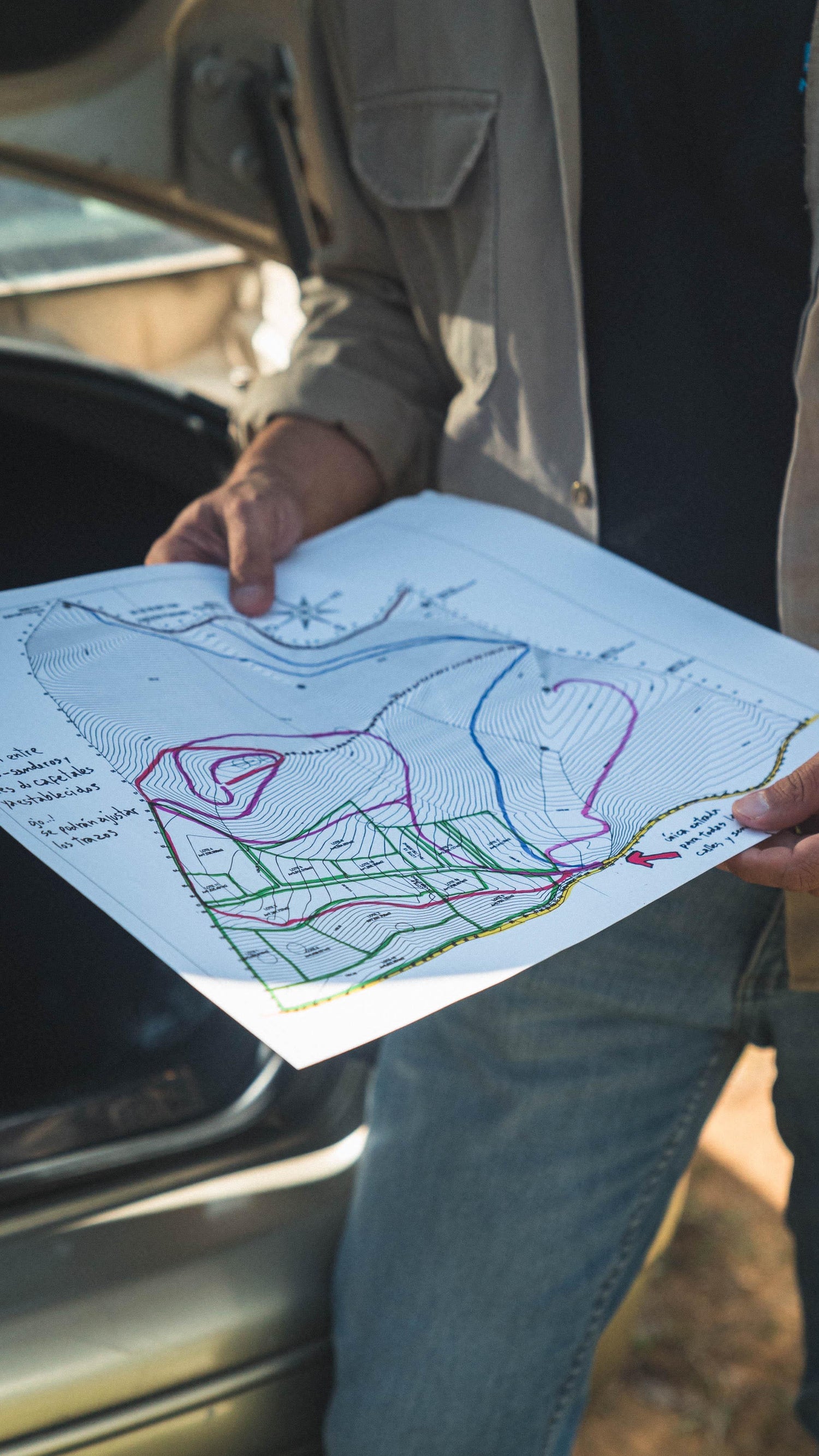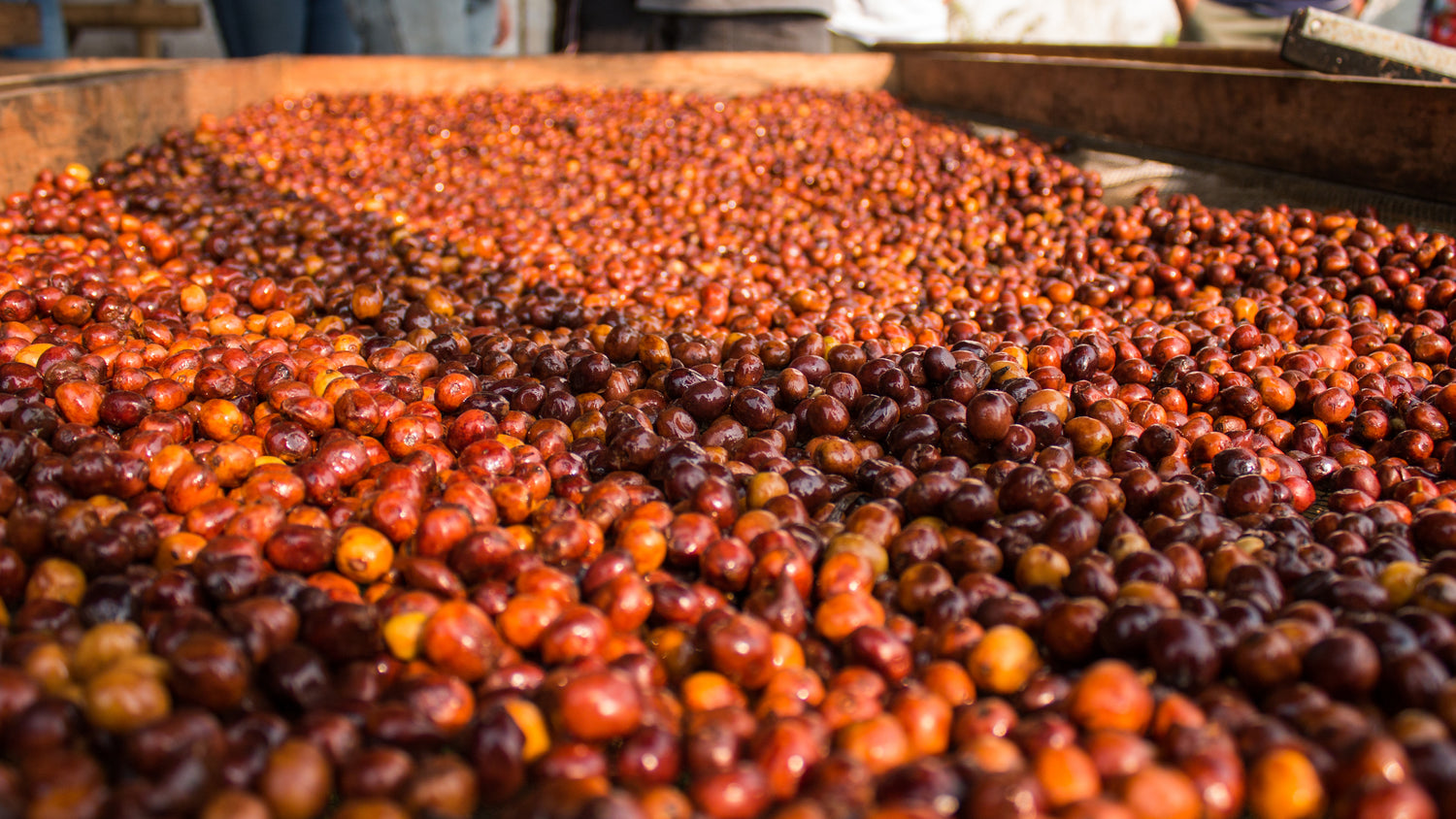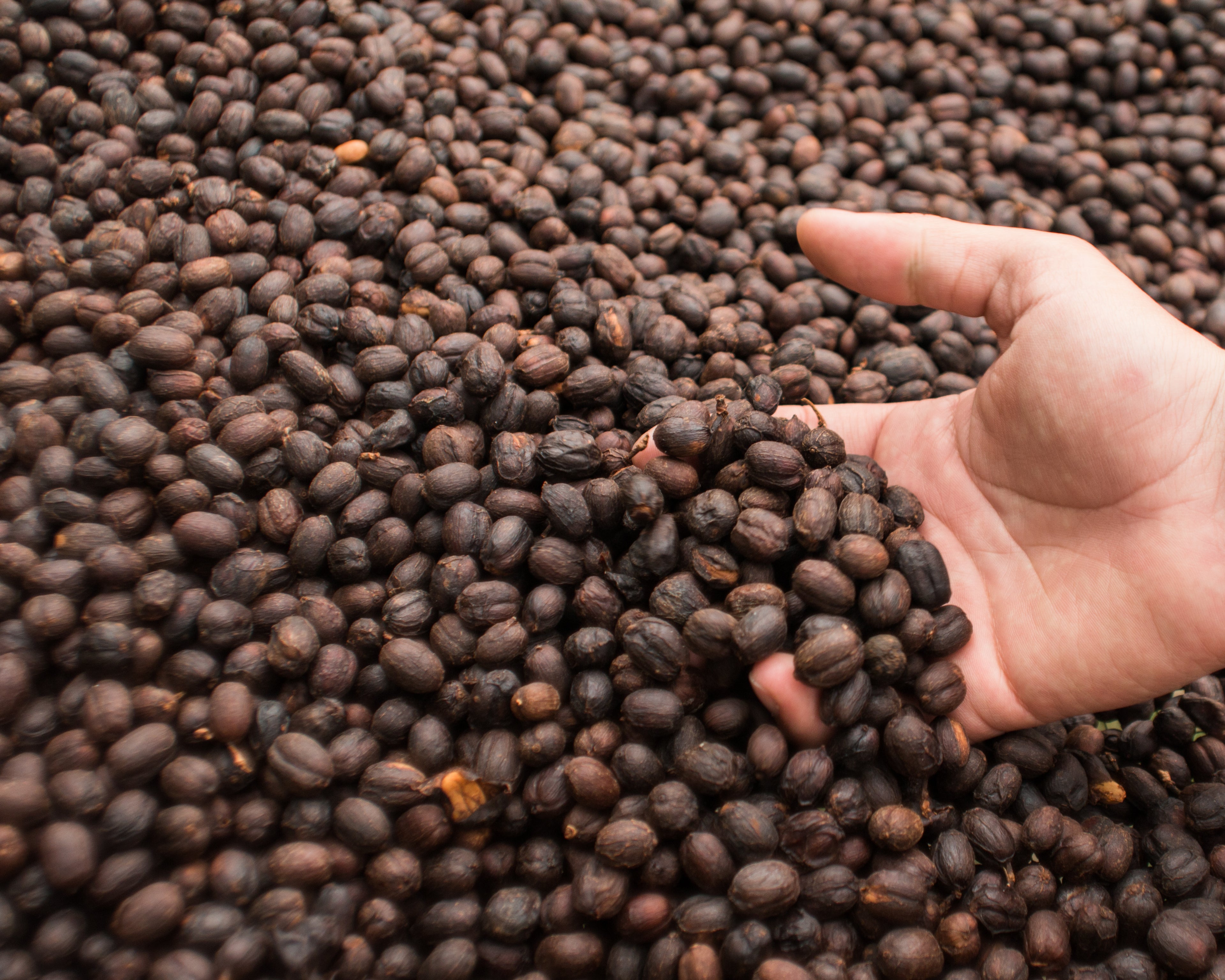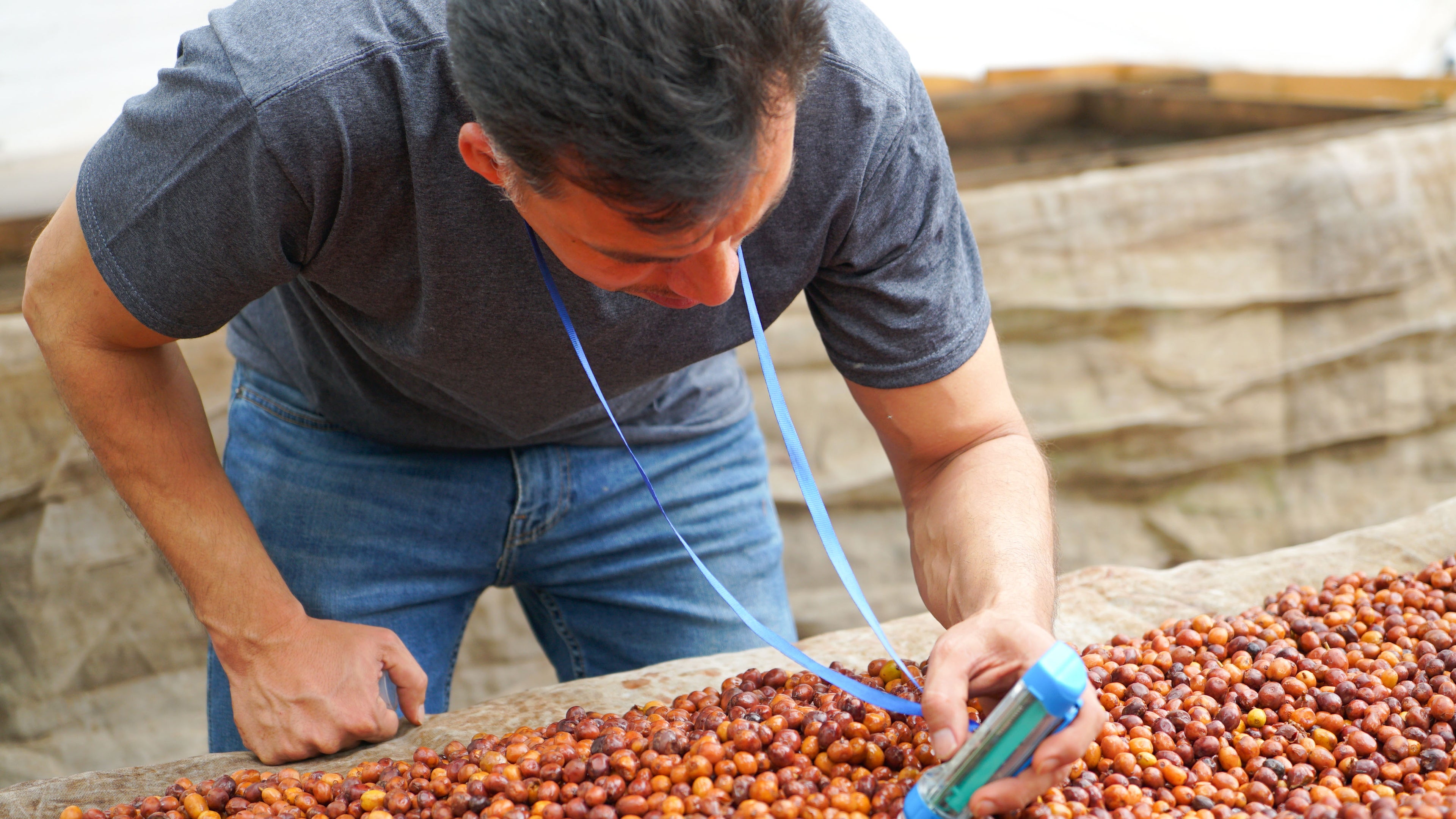
ABOUT LA JOYA
Samuel Ronzon is a third-generation coffee producer based in Veracruz, Mexico. He operates La Joya Micro-mill, in tandem with his wife Gloria, a PhD candidate in Ecology and Biotechnology Sciences. Their focus is on the production of intentionally fermented specialty coffees, using fermentation as a vehicle to drive flavour in the cup. Samuel believe that experimentation offers many advantages, allows them to learn, grow, and experience vitality. Through these new methods, he have learned to enhanced the qualities of terroir, optimize resources, and refine certain aspects of the coffee production process.

ABOUT THE COFFEE
La Joya specializes in natural processes, understanding the impact of fermentation and the microorganisms involved in the sensory profile of different varieties. Each variety was applied with different protocols. In the case of the Jade protocol with the Heirloom variety, Sam observed a better aromatic performance without significantly affecting the bean’s structure. Since they are not isolating or adding any other microorganisms but working with the microorganisms of the farm that, due to the conditions involved, are responsible for fermentation and/or oxidation, we can consider it a wild fermentation. The number of hours depends on the grain’s conditions at the time of reception and the temperatures. This heirloom was fermented for 144 hours.
Chat with Samuel Ronzón Soto
1. As the third generation of coffee growers, you made some significant decisions back in 2017. Could you share them with us?
In 2017, driven by a new vision for coffee, particularly specialty coffee, we embarked on a comprehensive project. We began by designing our farm from the ground up, aiming to create a space that embodies our values and aspirations. Central to this vision was ensuring that our coffee processing followed the scientific method. This approach emphasized small-scale, high-quality processes that blended traditional techniques with scientific research.
We focused on experimentation, meticulous documentation, and a deep understanding of our terroir, enabling us to craft unique flavor profiles that have gained recognition in competitions. Additionally, we embraced agroforestry principles, incorporating diverse crops and native trees to enhance biodiversity and promote sustainability.
2. How is the coffee farming scene in Mexico for serious growers?
In Mexico, coffee production has historically been in decline, and in recent years, it has plateaued at a relatively stable level. The drop in production is primarily due to a lack of investment in farm management, the prevalence of diseases like coffee leaf rust, and the impacts of climate change. These factors collectively hinder plant development and, consequently, affect the quality of the coffee produced.
Looking at the statistics, 95% of coffee producers in Mexico operate on farms smaller than 5 hectares. Many of these producers only sell coffee cherries rather than processing their coffee. Despite the large total coffee-growing area of 646,804 hectares in Mexico, the average yield is just 5.87 bags of coffee per hectare. To put this into perspective, Colombia produces 20 bags per hectare, and Brazil produces 46 bags per hectare. This disparity highlights issues such as poor farm management, low productivity, limited knowledge of coffee varieties, insufficient investment in farm mills, and the abandonment of coffee fields.
Nevertheless, Mexico’s diversity in climates and altitudes offers significant potential for coffee production. In recent years, there has been a growing focus on specialty coffee. Producers are increasingly experimenting with innovative processing methods, exploring diverse coffee varietals, and building direct trade relationships. These efforts are helping to elevate the global reputation of Mexican coffee and showcase its unique qualities.
3. Experimenting with coffee processing has been a trend for a while now. How do you make your coffee stand out from the rest?
At La Joya, we blend scientific innovation with practical application to elevate our coffee production. Through studying fermentation and the role of microorganisms, we have refined our processes to consistently produce unique, high-quality coffees.
Our experiments involve testing various fermenters, introducing specific microorganisms, and meticulously documenting how these variables affect sensory profiles. This systematic and data-driven approach not only enhances our coffee but also sets us apart in the industry.
4. What have been the biggest challenges you’ve faced so far?
- Climate Change: Unpredictable weather patterns disrupt flowering and harvesting cycles, impacting productivity and quality.
- Labor Shortages: Finding workers for the harvest season is becoming increasingly challenging.
- Market Volatility: Coffee prices often fail to reflect the quality and effort invested in specialty coffee production.
- Access to Resources: Many producers face difficulties securing financing or training needed for implementing innovative practices.
5. How has climate change impacted your coffee production?
Climate change has resulted in irregular rainfall patterns and rising temperatures, which adversely affect coffee flowering and fruit development. Additionally, pests like the coffee berry borer have become more widespread due to the warming climate.
To address these challenges, we’ve implemented strategies such as shade management, soil conservation techniques, and crop diversification. These efforts aim to create a more resilient ecosystem, ensuring the sustainability of our coffee production.
6. What are your thoughts on co-fermenting coffee with fruit or barrel-aging it?
At La Joya, we firmly believe that terroir is the cornerstone of coffee quality. While we acknowledge processes such as co-fermentation, infusions, and barrel-aging, our priority is maintaining transparency in trade. If these methods are applied, it is essential to communicate openly and honestly with buyers, as they ultimately decide whether to consume the coffee.
The coffee market is vast and diverse, catering to a wide range of consumer preferences. This diversity underscores the importance of producers understanding their target market and aligning their practices accordingly. For us, this means committing to authenticity, respecting the product, and upholding clarity in all that we do.
7. What do you see as the future for coffee farming in Mexico?
The future of coffee farming in Mexico lies in education, collaboration, and innovation. Producers need access to training and resources to enhance their processes and adapt to challenges such as climate change.
There is also immense potential in fostering direct trade relationships and adopting agroforestry systems that prioritize sustainability and quality. By blending traditional practices with modern techniques, Mexican coffee can continue to elevate its global reputation, carving a niche for itself on the international stage.
NOTES
BREWING RECIPES
BREW as Espresso
20g coffee in 46g out
Water/ 92°C
Brew time for this recipe should be around 24 sec
BREW with V60
BREW with V60
15g coffee/240g water/ / 92°C
⏱ 00:00 | 50 grams
⏱ 00:30 | 90 grams (up to 140g)
⏱ 01:00 | 50 grams (up to 190g)
⏱ 01:30 | 50 grams(stop at 240g)
⏱ 02:30 | Finish
LOOKING FOR OUR NEXT CHAPTER?
JOIN US FOR MORE EXCITED COFFEE

COFFEE : SUBSCRIPTION : NOW





